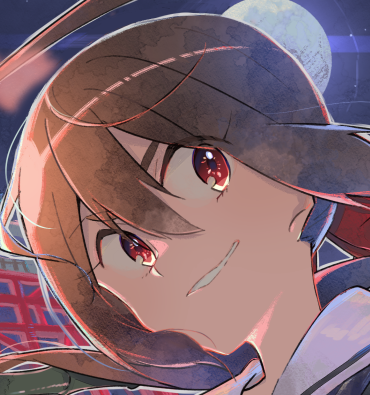Dutch, but only because I’m tired of Dutch people telling me I really shouldn’t have bothered when they find out I learned to speak Dutch.
I just like learning different languages because it lit|really provides new frameworks of understanding for me, goddamn.
Swedish, very pretty language
Esperanto. It’s an artificial language designed to be easy to learn and communicate in. Although it’s worth noting that there are esperanto dialects and speakers of one don’t necessarily understand speakers of another.
Also note that script is historically mostly used for communication over large distances and times.
Historical scriptures (such as the bible) got transported across half the globe and copied and passed down for more than a thousand years. The scripture transcends both space and time.
If you only want to communicate with your neighbour, you don’t need a lingua franca. Lingua franca is exclusively for writing down, and communicating over very large distances (such as the internet). In that case, no pronounciation is needed. So it is possible to have an abstract sign language that doesn’t even have a standardized pronounciation.
This might sound absurd at first, if you never thought about it, until you realize that is how a lot of our information is already transported. There are a lot of sketches and visualizations of important data that are graphics, plots, charts, drawings, and such, that don’t have a standardized pronounciation. The information is transported visually.
Chinese, Korean, Vietnamese, and Japanese are totally unrelated languages. Chinese languages are sino-tibetan, Vietnamese is austro-asiatic, Japanese is japonic, and Korean is alone in its own family. Totally unrelated to each other as far as we can trace.
Despite that, they all used to use the same writing system and, shockingly, they were mutually intelligible when written down. In Japanese this method of reading Chinese (without actually knowing Chinese) was called kundoku but I think that the other languages also had ways to read & write Chinese writing with very light translation. Even today, Chinese writing unites the different dialects/languages of China.
My proposed lingua franca is the Chinese writing system. Everybody should keep their own writing systems, but they should also learn to transcribe into Chinese, the only extant written language in which this is really possible.
Yes, learning a few letters that form syllables and through that you can read words even though you don’t know what they mean is not practical, it’s better to learn a some thousand symbols and, if you don’t know a symbol at all, you can’t even say it out loud because you can’t read it.
Ideograms are the imperial units of language.everything you said is true because chinese script is not based on pronounciation, but on (highly abstracted) images. these icons are universal because the concepts they represent are universal.
realistically, lojban, aui, mirad or kotava.
out of fictional languages, quenya, klingon, or the language of the culture from iain m. banks’ books.
mathematics or cartoons work great for communicating ideas to people who don’t speak the same language you do.
essentially, all languages are made up. we therefore need to focus more on universal languages that are the same everywhere. mathematics are one example, but surprisingly, so are comics. many of the emotions displayed there are widespread and close to universal.
Toki pona
Thus making everything open to interpretation

I’d honestly love to see something like that become an actual universal language. Simple grammar, sub 500 words, a little more meat on the bones to eliminate some of the ambiguity, but be easy enough to teach every kid in early grade school. Something that just allows basic communication and is accessible to everyone.
Don’t think it’s going to be an evolved toki pona though, it feels like most of its fan base just wants to keep it an impractical art hobby instead of allowing it to grow up to be something useful.
I stopped believing in toki pona when I heard somebody say that “watermelon” would be “kili telo” (fruit [of] water). It goes without saying that “kili telo” would not be understood as “watermelon” unless they had heard it in English before, or heard someone use the English-derived “kili telo”.
If you’re going to use English-language ideas to form words, then English is a prerequisite language for speaking toki pona, and toki pona becomes useless.I think if toki pona is developed as you describe, it could be much more useful than it is today.
Isn’t toki pona supposed to be an art language?
Is Esperanto similar to what you’re talking about?
Is Esperanto similar to what you’re talking about?
No, I think a true universal language is going to need minimal friction, and be as simple and vocab-limited as possible, to encourage mass adaptation.
For all its intent on being easier than other mainstream languages, Esparanto is still more complex than what I’m talking about.
French, we could all be a little more french when keeping our leaders on a leash
Gaeilge just to fuck with the brits. We all have to write it in ogham too, I don’t care how inconvenient it might be.
That or serbo-croatian because we are all serbs anyway
Tabhairfaidh mé mo vóta duit.
Such a pretty language. I should learn it someday!
Mé fresin.
I would have picked gaeilge too, since it’s the only other language I know (kinda, I’m terrible at it). Ogham sucks though.
Yeah Ogham would be fucking awful for modern communication but I thought it’d be really funny. In a more serious sense I actually think it’d be super interesting to see how humans adapted to it and adapted it to their needs.
Anyway I also picked Gaeilge because it makes for great lyricism
Interlingua
Esperanto! Yes, there are better conlangs, yes, it’s eurocentric, and yes, there are ways to improve it or even come up with something better. But it has a cool history, it’s tied to socialist movements and anarchist movements, it is fairly easy to learn (especially for speakers of European languages), it’s grammar is super simple, it uses a system of root words and affixes that make me think of Legos, and it has real, native speakers already, meaning it is a living language that has changed over time, and is fully capable of being used exclusively to communicate efficiently.
Plus, the fascists fucking hate it
Actually wondering, why would fascists hate it? Idk much history behind language, just know that language exists.
Congrats, you managed to turn this conversation into a socialism vs fascism conversation. It wasn’t easy but you spotted an opportunity and you took it. Now we can all talk about your favourite topic!
Congratulations, you managed to get offended by a historical tidbit about a constructed language!
Oh, and pissing off fascists is always good. Period. Full stop. If you don’t think that’s true, perhaps it’s time for some introspection!
Not against Esperanto but creating a “universal language”and then making it gendered seems a little stupid.
It’s not as bad as other languages on this front, but if I remember correctly there’s still no agreed-upon gender neutral singular pronoun in Esperanto is there?
Mi forgesis, ke mi lernis ĉi tiun lingvon.
There’s a daughter language called Ido that’s done away with gender, iirc. And I believe there’s some gender neutral ways to get around it in the community, but it’s been a long time since I’ve attempted to do anything with it
Might as well choose English at that point.
Plus, the fascists fucking hate it
Lol was waiting for this kick-back
I would prefer some kind of sign language
I like this idea. Generally somewhat simplified, and no “pronunciation” needed if it were standardized.
I feel like Indonesian is a decent start. There are already a lot of people speaking it, and it’s REALLY easy to learn.
There’s no conjugation and no cases/agreement. I’m a native English speaker and picked up a functional amount of Indonesian in a matter of months, just from reading a couple books before we went.
deleted by creator


















